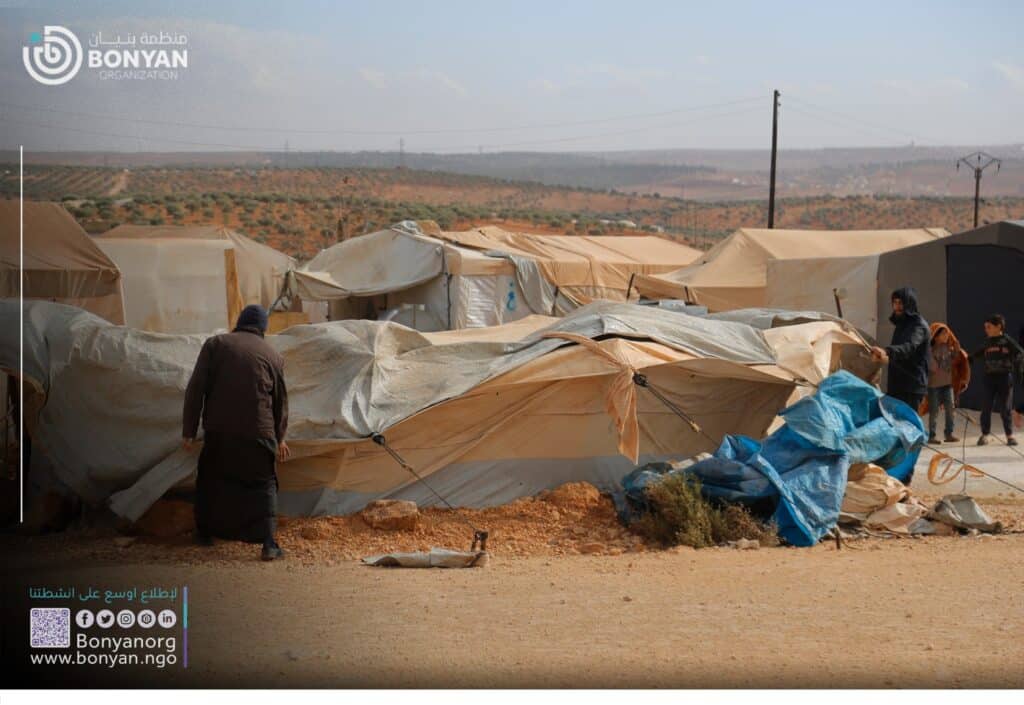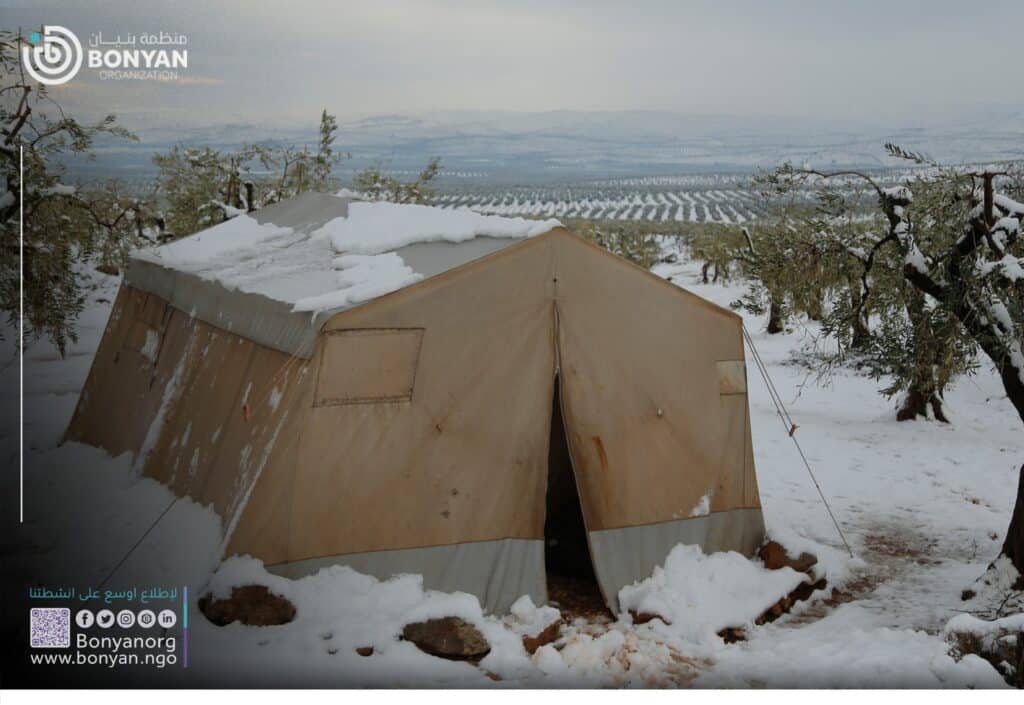Winter has a unique beauty of its own, sitting beside the fireplace warm with your loved ones, having warm and delicious meals and hot drinks to keep you warm, safe, and healthy.
But that is the picture you will see if you have a cozy house to live in through this season. However, those who are left without a home are forced to live the unpleasant unwanted cold-dark side of this season!!!
How Winter Affects Refugees’ Health
Just like every winter, as its storms move into the Middle East, the most vulnerable most affected populations will be the millions of Syrian refugees fleeing from the violent-long war.
All camps around the Syrian Borders are extremely cold in winter, and refugees live in temporary, random tent camps under harsh winter conditions. No shelter, no food, no warmth, and no health care!
Heavy snow, torrential rain, severe cold, and temperatures ten degrees below zero or less.
The torrents decimated their tents, the cold pierced their clothes, and there is no way for them to reach warmth, nutrition, or medical care.
Refugees are facing health decline and exposure to all kinds of diseases, most of which end in death.

Infants and the Very Young are Most Affected by Winter
For years, Refugees have been facing winter with a tremendous fear of falling severely sick or losing one of their loved ones, as winter harvests the soul of the elderly and young children every season of every year.
All camps are exposed to unbearable-freezing cold. In northern Syria, the temperature falls more than ten degrees below zero. And all camps are in lack essential basic needs to just survive. No human can survive this degree of cold with no home, no warmth, and no proper clothes for such weather.
Infants and very young children are the most affected and most vulnerable, as their tiny, tender bodies cannot hold still in the face of every year’s severe, cruel winter.
They have no strength, nutrition, or safe, warm place to survive.
And every winter, many families lose their babies, surrendering to a fate they cannot change.

Common health issues refugees have in winter
Many factors can affect refugee health; one of the most is the refugee camp conditions. Refugees may face a wide variety of acute or chronic health issues, which include infectious diseases such as tuberculosis or intestinal parasites and chronic illnesses such as diabetes or hypertension.
Not to forget the most important one, mental health issues in one of the most crucial issues, such as post-traumatic stress disorder or depression. And some conditions present diagnostic and treatment challenges.
Serious health problems
- Non-communicable diseases include heart disease, cancer, diabetes, chronic respiratory disease, and mental health conditions.
- Infectious diseases such as measles and diarrhea.
- Measles, polio, viral hepatitis, diphtheria, and whooping cough.
- Skin diseases such as scabies, fungi, and leishmaniasis.
Refugees Suffering from Lack of Healthcare in Camps
Refugees do not have enough decent healthcare services due to the shortage of clinics and medical points. Many factors have become an obstacle in the face of providing suitable healthcare levels in camps. The key factors are the financial and structural barriers.
Help Refugees to Stay Healthy. Donate Now
We all need to participate in helping refugees stay healthy and maintain their well-being. Although many organizations and civil society groups are doing their best to provide the essential needs that refugees need the most, and offer many types of support, however, a massive number of refugees are still suffering from a lack of healthcare services.
You can help. Reach out to the nearest charity or civil society group you have and give your donations, or you can give your donation to one of the most reliable organizations – Bonyan Organization – and be at ease that your donations will be well delivered to those in need.
FAQ
What Are the Main Challenges for Healthcare Workers to Help Refugees in Winter?
Efficient Financial support from humanitarian organizations and international community organizations.
Difficult access to camps under harsh winter conditions and off-road due to torrential rains and heavy snow.
How Can We Save Refugees in Winter?
We can save refugees in winter by giving donations to organizations and civil society groups who are taking healthcare services upon their shoulders.



